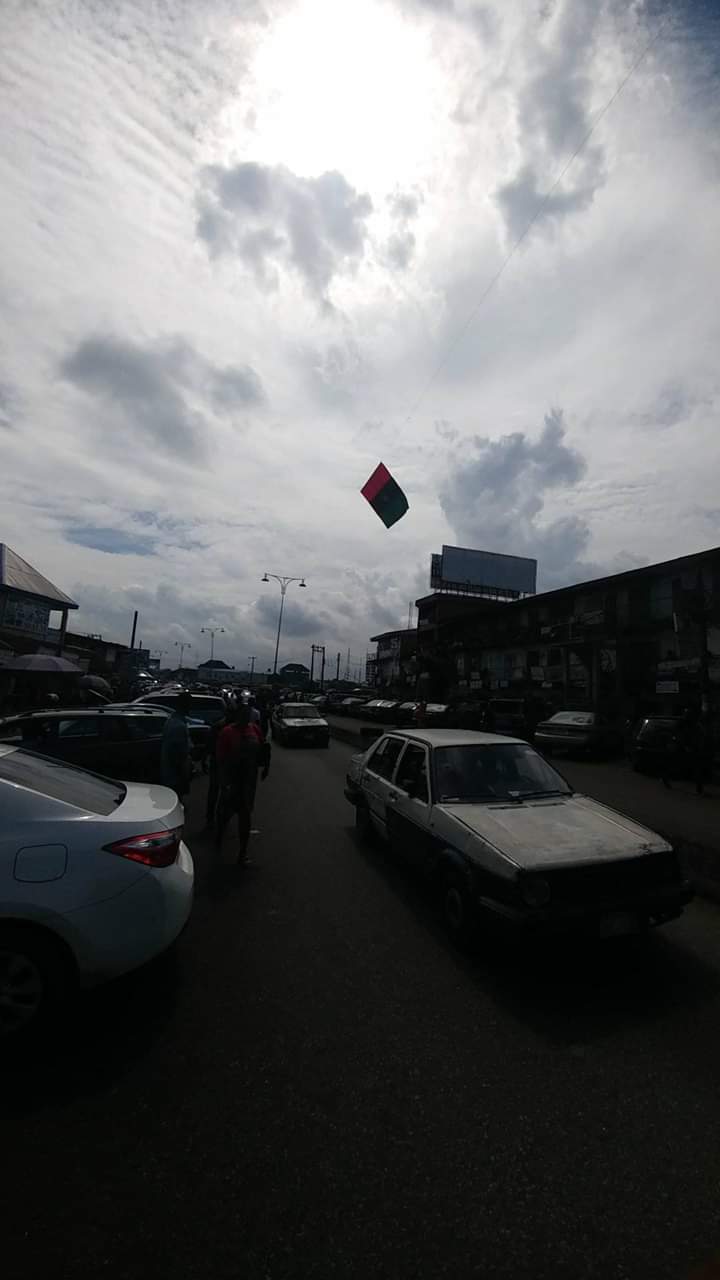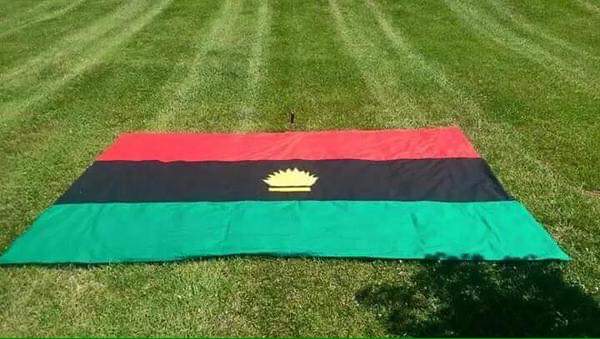Port Harcourt town on Thursday is busy by half. Unlike what it used to be on a normal working day when vehicles go at each other fender to bumper. Economic activities, especially commerce came to a near halt due to the sit-at-home order by Indigenous People of Biafra, IPOB.
The roads are clear of traffic hurdles. Places like Rumuokoro; Nkpolu junction; GRA junction and Mile 1 to Mile 3 that used to be traffic nightmares are clear from all the traffic troubles. There is remarkable compliance as Ikokwu, Iloabuchi and other Diobu axis were totally shut down with a Biafran flag hoisted in the middle of the road.

Most business places owned by the Igbo were shut. Car dealers, taxi and bus drivers, clothes merchants and other regular people stayed at home. At Rumuigbo, they used the opportunity to clear the clogged street gutters.
Economic activities in Oyigbo were crippled. At the popular Mile 1 Market, few persons sold what the multitude of customers wanted to buy. Buyers walked about looking for shops to buy commodities. Some said they were forced to return the next day.
Banks and other businesses not belonging to the Igbo were open for business.
A lady who had gone to the popular Bush Market to buy goods told our correspondent that everywhere was empty, forcing her to wonder what was going on. But upon enquiry, she was informed of the sit-at-home order given by the Indigenous People Of Biafra.
The sit-at-home order is usually observed by the Igbo People all over the world every 30th of May in remembrance of over 3 million people who perished during the civil war. The war lasted from 1967 to 1970.
Although the civil war ended 5 decades ago, with the then federal military government declaring “No victor, no vanquished” the Igbo are still subjected to different degrees of humiliation; killings; denial of basic rights and marginalization which started off with the 20 pounds policy given to anyone who had moneys in the the bank immediately after the war.




